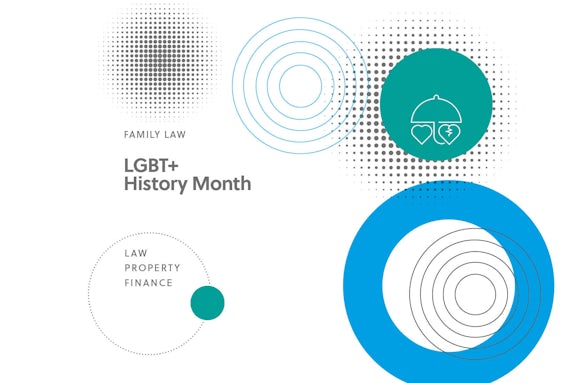LGBT+ History Month gives us a chance to recognise the many amazing things that LGBT+ people and communities have achieved in Scotland and around the world. In both 2015 and 2016, Scotland was recognised as the “best country in Europe for LGBT+ legal equality”. LGBT+ rights in Scotland have evolved comprehensively and we’re now one of the most progressive countries in the world – so it might surprise you to know that despite Civil partnerships having been a right of same-sex couples in Scotland since 2005, when the UK Parliament passed the Civil Partnership Act 2004 giving same-sex couples most of the rights and responsibilities of civil marriage as well as the setting out the formal process for dissolving civil partnerships similar to divorce, at that point in time there were still legal barriers in place for LGBT+ to become parents.
Fostering/Adoption
In 2007 the Adoption and Children (Scotland) Act passed into law in Scotland and the law allowed for the first time, unmarried couples including same-sex couples, to apply for joint adoption. Couples who formed a civil partnership and those who are ‘living together as if civil partners in an enduring family relationship’ were able to adopt jointly, giving them the same parenting rights as heterosexual couples in Scotland when the law came into force from September 2009. At the same time, the Looked After Children (Scotland) Regulations 2009 came into effect, which allows same-sex couples to be considered as foster parents on the same basis as anyone else.
The registering of new adoptions were suspended due to the COVID-19 pandemic so while we don’t have up-to-date figures we do know that in 2019 the Registrar General reported that there were 472 adoptions in Scotland.The annual report from Scotland’s adoption register showed that the family composition of a quarter of the families referred to the register in 2020/2021 were same-sex adopters
To adopt a child in Scotland you can do so if you meet the following criteria
You’re an adult aged 21 and older
Single or in a couple again man or women either on your own or with a partner or spouse
There is no legal upper age limit.
How do I arrange an adoption?
Adoption can be arranged through either an agency via your local authority or any other registered agency in your area.
If you want to adopt a child who is a close relative or a step child you do not need to involve an adoption agency but you must tell your local authority that you want to adopt a child. In order to obtain an adoption order you have to apply to the court. An adoption order cannot be granted until a child has lived with you for at least 13 weeks and the child must be at least 19 weeks old before the order is granted. The courts paramount concern will be ensuring that the child’s welfare is safeguarded and supported throughout their life. An adoption order will not be made unless the birth parents agree or unless the court decides that their consent is not needed. If the child is aged 12 over then the child formal consent is also needed. When the adoption order is granted you will have full legal rights and responsibilities for the child
Generally speaking, the adoption process starts with the placement of a child for adoption. If you wish to apply to the court for an adoption order, you must first intimate your intention to do so to the local authority within which you reside. The local authority or the adoption agency will prepare a report which will detail the whole circumstances of the child and will indicate whether the adoption order is supported. Next, the adoption petition is prepared and will be lodged along with the report from the Local Authority/ Adoption Agency. The court must then decide whether the petition requires to be served on the natural parents and the child. A reporting officer/curator ad litem is appointed who will prepare a further report, charged with the duty of safeguarding the interests of the child. When the adoption order is granted, you receive full legal responsibilities and rights for the child and (unless you have applied to adopt a step-child) the legal rights of the birth family end.
Surrogacy
Altruistic surrogacy arrangements are legal in the UK and are becoming more and more common. The not for profit organisation Surrogacy UK report that since 2010 their percentage of same sex intended parents has been rising steadily and currently stands at around 47%
There are two types of surrogacy – partial or full. Partial surrogacy involves the surrogate mother’s egg being fertilised with the intended father’s sperm. In full or gestational surrogacy there is no genetic link between the surrogate mother and child. Instead, it involves the implantation of an embryo using the eggs and sperm of the intended parents or a donated egg fertilised by the sperm of the intended father
The Human Fertilisation and Embryology Act 2008 sets out provisions for the legal parentage of children born from fertility treatments including surrogacy arrangements. In the UK when a child is born via a surrogacy arrangement, the law will recognises the woman who gives birth to that child as the child’s legal mother. If the surrogate is married or in a civil partnership, her spouse will also be recognised as the child’s legal father. The intended mother is not recognised as having any legal relationship with the child and the intended father will only be recognised as having a legal relationship with the child if the surrogate is not married and he has a biological link to the child. Parental orders are therefore required to transfer legal parenthood to the intended parents and extinguish any rights of the surrogate (and her spouse or civil partner if necessary). Before 6 April 2010, only heterosexual married couples were eligible to apply for parental orders, but since then same sex couples have also been allowed to apply, whether they are civil partners or not. On 3 January 2019 new law came into force making parental orders (which give parenthood to the intended parents after the birth and extinguish the status of the surrogate) available to single parents as well as to couples.
The intended parents must apply to the court to be granted a parental order through the court within 6 months of the child being born. At the time of the application certain other conditions must be met such as the child’s home must be with the intended parents (who must be domiciled in the UK), the surrogate’s agreement to the parental order must be obtained and the court must be satisfied that no money or other benefit, other than reasonable expenses have been paid either for the surrogacy itself or for arranging the agreement.
Surrogacy law is currently undergoing long overdue reform. Currently, intended parents have to wait until the child has been born and then apply to court to become the child’s parents. This process can take a significant period of time to be concluded and more importantly affects the intended parent’s ability to make decisions about their child. There is also a lack of clarity around surrogacy payments as legally, intended parents can only pay a surrogate reasonable expenses. It is hoped that the reforms will bring about a new pathway to legal parenthood with the intended parents being the child’s legal parents from birth.
At Gilson Gray we can help guide you on your journey to parenthood. If you are thinking about adoption or surrogacy it is important to seek legal advice as early in the process as possible. Contact one of our experts who will guide you through every step.
If you would like further information regarding this blog, please contact:
Sarah Feeney by email: sfeeney@gilsongray.co.uk or by phone 0131 530 2034
You can also visit our Family Law Team page by clicking here.
The information and opinions contained in this blog are for information only. They are not intended to constitute advice and should not be relied upon or considered as a replacement for advice. Before acting on any of the information contained in this blog, please seek specific advice from Gilson Gray.








